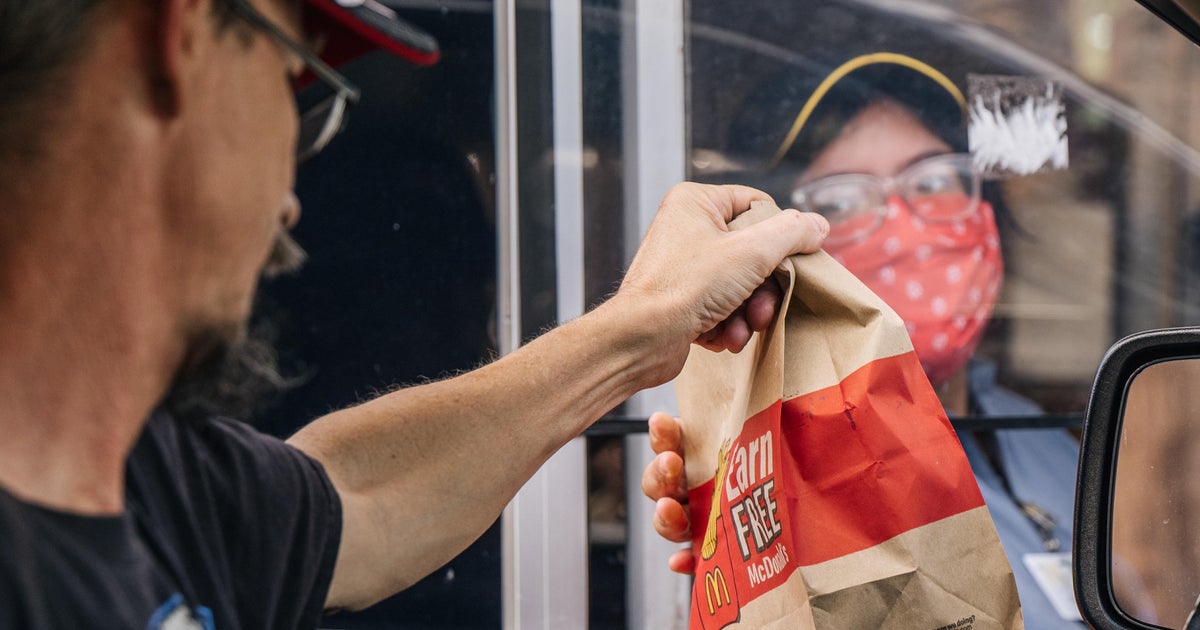
McDonald's again requiring masks as Delta variant spreads COVID-19
CBSN
As the COVID-19 Delta variant spreads nationwide, McDonald's workers and customers alike will have to wear masks again — regardless of their vaccination status — with the fast-food chain reinstating the policy at most of its more than 14,000 restaurants across the U.S.
The restaurant giant confirmed that it is reimposing the requirement following guidance from the Centers for Disease Control and Prevention calling for masks inside public places in areas with high or substantial transmission of the coronavirus. Nearly 80% of U.S. counties currently fall into those categories, according to the CDC. McDonald's had dropped its mask requirement for fully vaccinated customers in May, while maintaining the mandate for unvaccinated patrons and workers. The company is among a slew of large employers revamping their vaccination and masking rules as the so-called Delta variant spurs a resurgence in COVID-19 cases across the U.S.
The president of El Salvador is refuting allegations made by Kilmar Abrego Garcia - the man whose mistaken deportation by the Trump administration has fueled a monthslong legal saga – in which he said he was beaten and subject to psychological torture while in prison in the Central American country.

Washington — President Trump is bringing pomp and circumstance to his signing of the "big, beautiful bill" on Friday, with a 4 p.m. Independence Day ceremony at the White House. The current $2,000 child tax credit, which would return to a pre-2017 level of $1,000 in 2026, will permanently increase to $2,200. The bill would allow many tipped workers to deduct up to $25,000 of their tips and overtime from their taxes. That provision expires in 2028. The bill would make changes to the Supplemental Nutrition Assistance Program, or food stamps, expanding work requirements and requiring state governments with higher payment error rates to cover some of the program's costs. The legislation also includes more than $46.5 billion for border wall construction and related expenses, $45 billion to expand detention capacity for immigrants in custody and about $30 billion in funding for hiring, training and other resources for U.S. Immigration and Customs Enforcement. The legislation would raise the debt ceiling by $5 trillion, going beyond the $4 trillion outlined in the initial House-passed bill. Congress faces a deadline to address the debt limit later this summer.

 Run 3 Space | Play Space Running Game
Run 3 Space | Play Space Running Game Traffic Jam 3D | Online Racing Game
Traffic Jam 3D | Online Racing Game Duck Hunt | Play Old Classic Game
Duck Hunt | Play Old Classic Game









